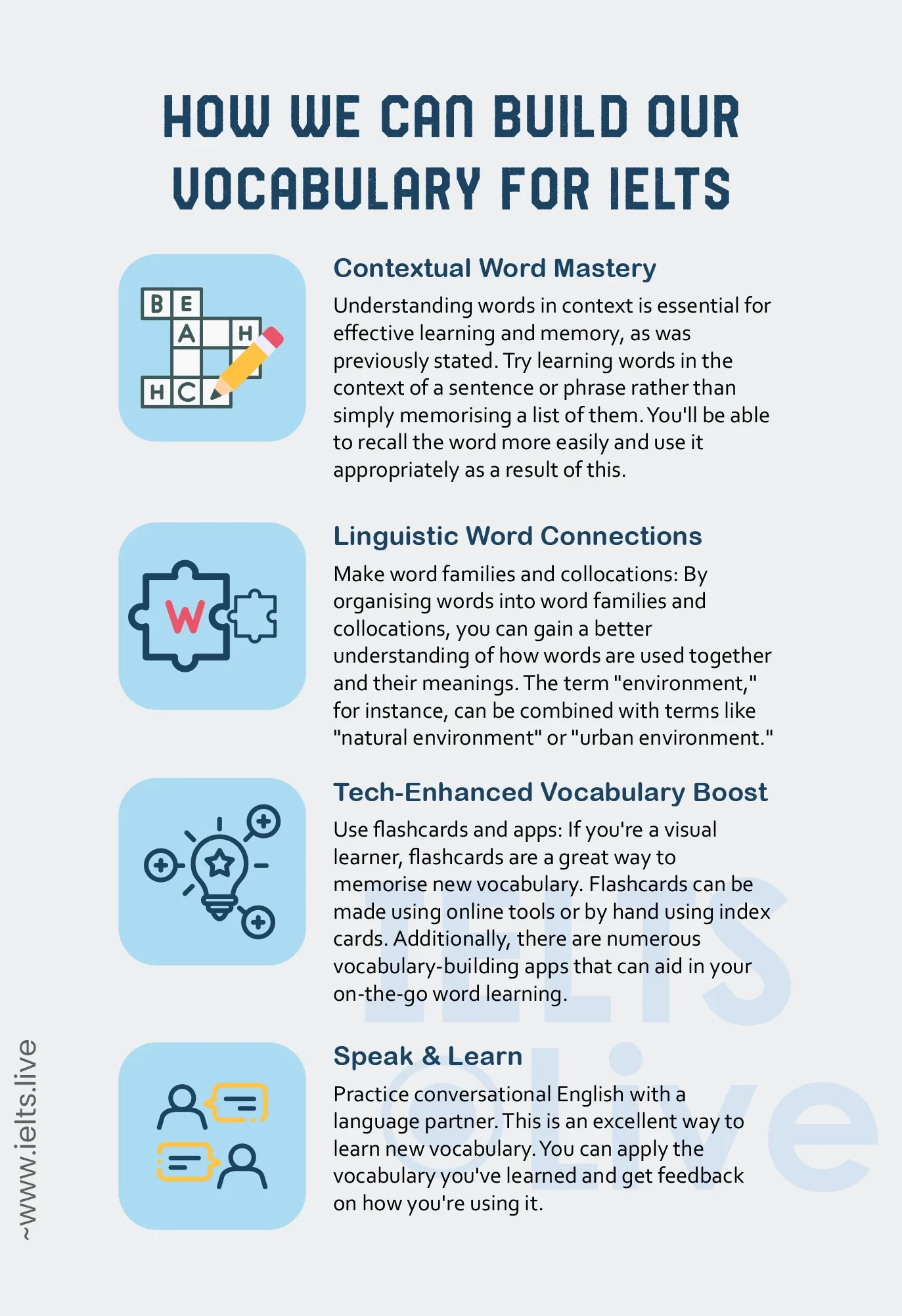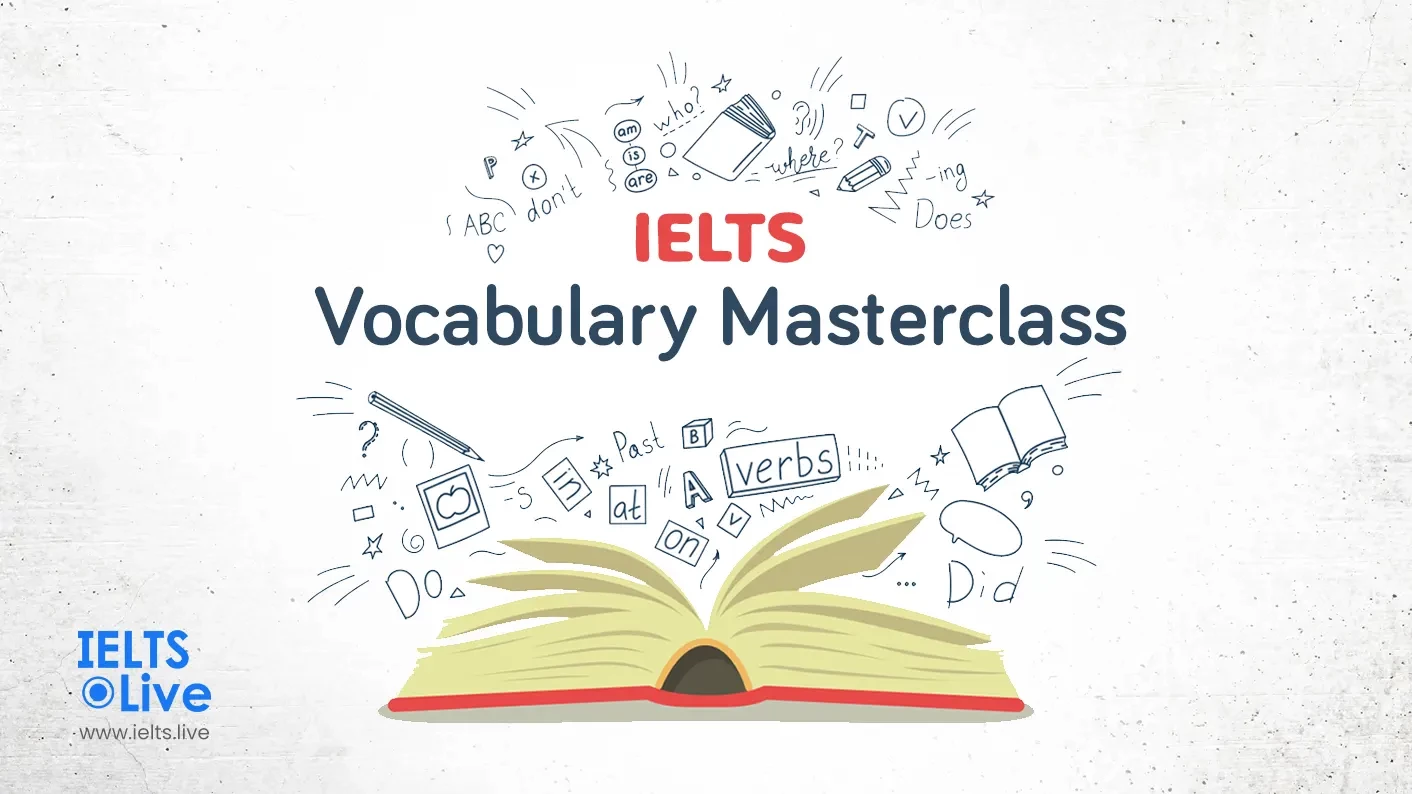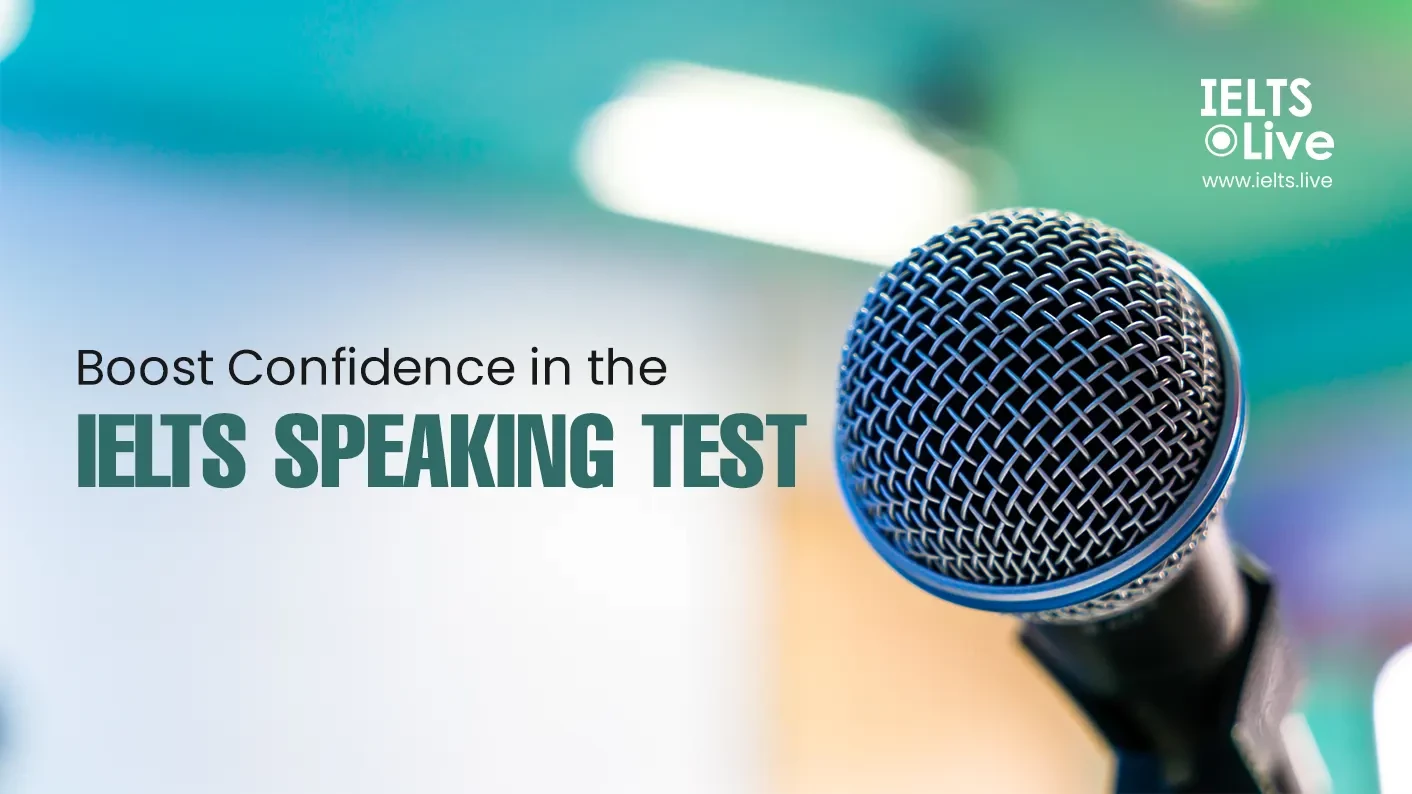
I vividly recall the moment when I was struggling with my IELTS preparation. I felt as if I were trapped in a never-ending loop of learning new words without fully understanding their meanings.
That's when I learned how critical it is to create a strong vocabulary basis in order to succeed on the IELTS exam.
In this blog post, I'd want to relate my experience with vocabulary development and how it helped me attain my goal score.
You may also like: IELTS Vocabulary Masterclass: Unlocking Your Language Potential
It might be difficult to know where to begin with so many resources and learning techniques available. But don't worry, I'm here to help you expand your lexicon. We'll look at efficient vocabulary-building approaches, including context clues, word families, and collocations.
You will not only learn new words, but you will also develop a better knowledge of how they are employed in various settings.
Believe me when I say investing in your vocabulary will pay you on exam day and afterwards. So, let's get started and discover the power of words together!
Importance of context in learning vocabulary for IELTS
As I began my IELTS preparation, I was consumed with memorizing lists of words, but I quickly realized that this approach was ineffective. To properly learn and remember the words, I needed to understand how to use them in context.
When it comes to language learning, context is everything. Words can have several meanings and be used in various ways depending on the context. Understanding the context in which a word is used not only helps you learn its meaning but also its nuances and connotations. It allows you to utilize the word accurately and efficiently, which is essential for doing well on the IELTS exam.
For example, depending on the context, the word "run" might have multiple implications. It can refer to physical activity, a political campaign, or the operation of a machine. If you fail to understand the context, you may use the wrong term and lose marks on the exam.
Also, knowing words in context improves your memory. When you come across a term in a given context, your brain connects the word with its usage. This link makes it simpler to remember the term later.
Therefore, it's important to learn words in context as well as memorize them. Reading, watching movies, and engaging in conversation practice are all excellent methods to expose yourself to new situations and broaden your vocabulary. Understanding words in context will give you the knowledge and confidence to utilize them properly on the IELTS exam and in everyday life.
Let’s look at some examples of what learning vocabulary using context looks like,
Let’s say our topic is “Food and Health”
A word related to that is Obesity.
(Example) By the year 2030, one billion people are estimated to be living with obesity globally.
Here, Obesity means an abnormal or excessive fat accumulation that presents a health risk. In simpler words, the state of being extremely fat or overweight.
Let us see some more sentences with the word obesity.
A significant problem that plagues the country is obesity due to its citizens’ poor eating habits.
Obesity can be caused by stress-related eating and lack of exercise.
Word number 2 is Mouth-watering.
Mouth-watering means smelling, looking, or sounding delicious.
(example) I walked in and smelled something mouth-watering.
The waitress came round with a tray of mouth-watering cream cakes.
What are active and passive vocabulary?
Words that you know and understand but don't always use in your own speech or writing are referred to as "passive vocabulary." On the other hand, words in your active vocabulary are ones you can use in your own communication with assurance and accuracy.
Although passive vocabulary is crucial for reading comprehension and listening abilities, the IELTS exam will focus on your active vocabulary. The examiners are looking to see how well you can express your ideas and opinions through language.
Focusing on words that you can use in various contexts will help you increase your active vocabulary. Try learning words that are frequently used in both written and spoken English rather than memorising words for the sake of memorising. As you practise using these words in your own writing and speaking, pay attention to how they are used in context.
Participating in conversation practice with a language partner is a useful strategy for increasing your active vocabulary. This will give you a chance to put the new words you've learned to use and get feedback on how you're using them. You can expand your active vocabulary by reading and listening to English-language content, exposing you to new words in context.
How we can build our vocabulary for IELTS

- Understanding words in context is essential for effective learning and memory, as was previously stated. Try learning words in the context of a sentence or phrase rather than simply memorising a list of them. You'll be able to recall the word more easily and use it appropriately as a result of this.
- Make word families and collocations: By organising words into word families and collocations, you can gain a better understanding of how words are used together and their meanings. The term "environment," for instance, can be combined with terms like "natural environment" or "urban environment."
- Use flashcards and apps: If you're a visual learner, flashcards are a great way to memorise new vocabulary. Flashcards can be made using online tools or by hand using index cards. Additionally, there are numerous vocabulary-building apps that can aid in your on-the-go word learning.
- Practice conversational English with a language partner. This is an excellent way to learn new vocabulary. You can apply the vocabulary you've learned and get feedback on how you're using it.
Now let's talk about the application of the vocabulary you learned.
Use the proper wording
Pay attention to the wording that is required in the task or question. For instance, if the task calls for an adjective, don't substitute a noun or verb form. This is especially crucial when taking language tests like the TOEFL or IELTS, where small details can have a significant impact on your final score. Therefore, before submitting your answers, always read the instructions thoroughly.
Apply the vocabulary in context
Make sure the words are used in the right context. Don't just throw them in at random when you write or speak. Make use of the words in a way that demonstrates your comprehension of their usage and meaning.
Avoid overusing
Using a lot of complex words can make your writing or speaking sound forced. Only use the vocabulary you've learned when it's appropriate and necessary. For instance, a candidate might be tempted to repeatedly use the word "anthropogenic" (meaning caused by human activity) throughout their essay in an IELTS essay question about climate change. However, doing so would not only come off as repetitious but also lessen the impact of their case. To effectively communicate their ideas, they should use the word in the proper context and combine it with plainer language.
Use synonyms
If you're not sure what a word means or how to use it, consider using a synonym that you are more accustomed to using. You can avoid using the word in an improper context by doing this. For instance, to convey the same meaning in a more approachable way, a writer could use synonyms such as "use," "employ," or "apply" instead of the word "utilise," which can sound overly formal. Similarly, if a speaker lacks confidence in using a complex word like "paradigm," they could convey the same idea by using shorter phrases like "way of thinking" or "perspective."
Use the words naturally
Don't try to force the words into your writing or speaking. Use them naturally and only when they fit naturally in the sentence. If you're not familiar with a particular word, try using a synonym that doesn't make you sound like a pretentious know-it-all. Trust me, your readers and listeners will appreciate it when you use words that come naturally to you instead of trying too hard.
That is all for this blog now let’s get to work and learn some vocabulary for IELTS success! To make the preparation process easier for you we have put together some must-know words for the IELTS exam in our Vocabulary Diary. You can get to more about it on our website and Facebook page.






0 COMMENTS